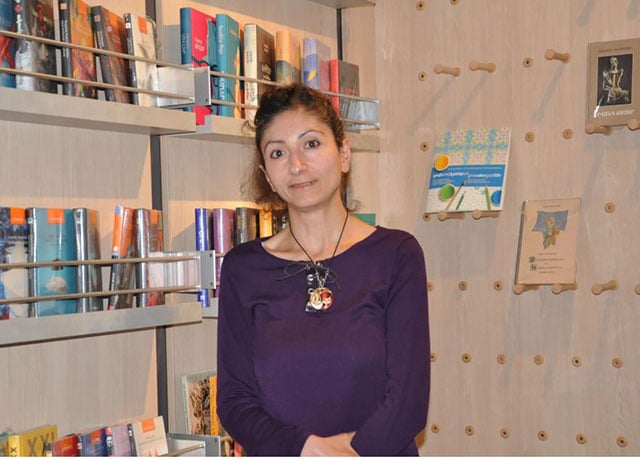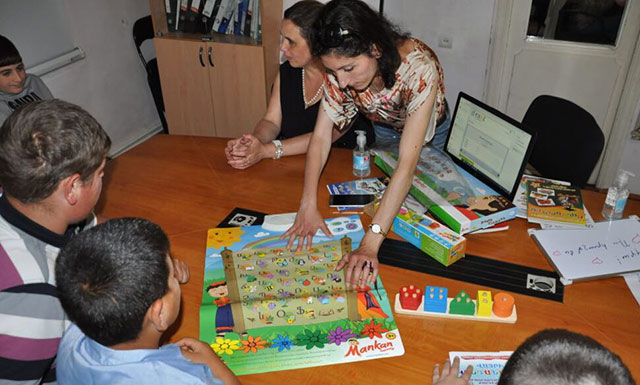Forty-year-old Elisa Melkonyan from Armenia is an assistant teacher and lives with multiple disabilities.
She is one of the 32 women and girls with disabilities, who took part in a training course run by the Agate NGO and supported by the European Union.
“It is tough for people with disabilities to find a job in Armenia,” said Elisa. “I knocked on many doors, but they remained closed.”
This is why Elisa decided to attend the training.
“I wanted to be more confident and financially independent,” she said.
Following the course, she found work as a teacher’s assistant.
“I work with the teacher and I help students with life skills and literacy,” she said. “On the first day, I was afraid I might be unable to work. But then I remembered the conversations about self-belief during the training, and I quickly pushed aside that concern. When I think about my ability to educate children and my courage to become independent, I realise how happy I am.”
Elisa believes it is important that people living with a disability receive support, but also that they believe in themselves and their abilities.
“It is necessary to empower people with disabilities so that they start to trust their abilities and discover their strengths and talents,” she said. “That was exactly what happened to me during the training.”
If perseverance is the key to success in her work, it is also important in other aspects of her life. For example, her hobby – knitting.
“It was the same thing with knitting,” she said. “It didn’t work several times. I was taking the wool apart and putting it back together again and again. I was afraid I might be unable to knit because of my disability.”
Eventually, she succeeded. Not only that, she turned her hobby into an income generator.
“You have no idea how excited I was when I saw the result,” she said. “It was a real victory for me. When I sold my work for the first time, I was as happy as a child.”
Elisa received support under the ‘EU 4 Gender Equality: Together against gender stereotypes and gender-based violence’ programme, funded by the European Union and implemented jointly by UN Women and UNFPA.


























































